Parkinson's: Using exercise to turn the table on disease
- Published
Scott Hanley says a change in his lifestyle has helped him to deal with his Parkinson's
Six years ago, Scott Hanley noticed a discernible change in his body.
"Although not overly apparent, my hand started to go, like a twitch," he told BBC News NI.
These subtle twitches then led to what the 56-year-old calls "sticky legs", which made it difficult for him to move.
When his symptoms worsened he was referred to a neurologist and in 2017 Scott was diagnosed with Parkinson's disease.
Since that diagnosis Scott has been using a mixture of physical activity, cognitive exercise and diet to combat the disease.
His neurologist told BBC News NI that his symptoms "had decreased significantly".
"I still have Parkinson's - the proof of that is in the scan. But now it's been 15 months since I have had any symptoms," Scott said.
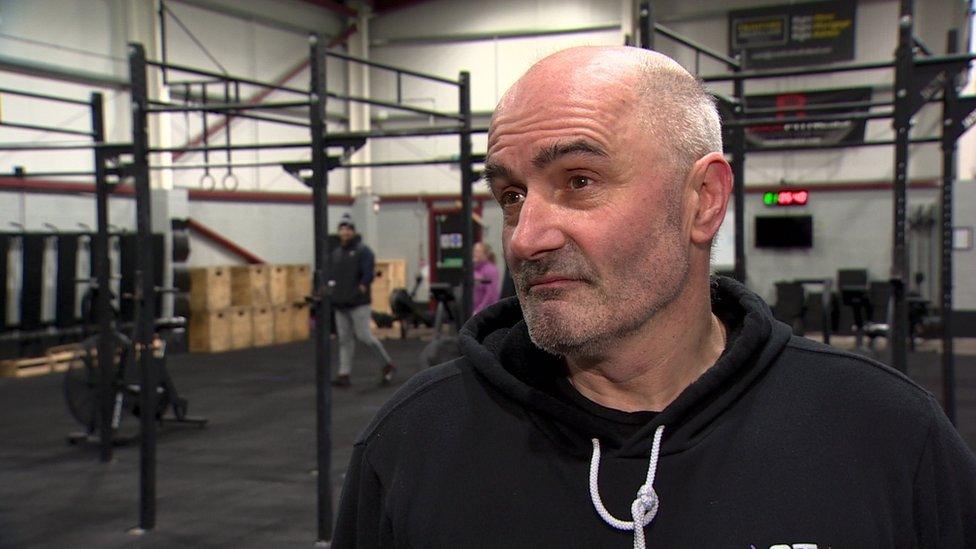
Scott goes to the gym three times a week
Diagnosis
Prior to his diagnosis he recalled being out for a walk one day when his leg suddenly ceased.
"It was like I had a big metal boot on - I just couldn't move."
The tremors and cramps were so bad that Scott said he became sleep deprived and delirious.
"One day, I couldn't remember how to get to my office.
"I had forgotten where I worked… and the hallucinations were just horrific and some of the most ghastly aspects of what I was experiencing."

What is Parkinson's disease?
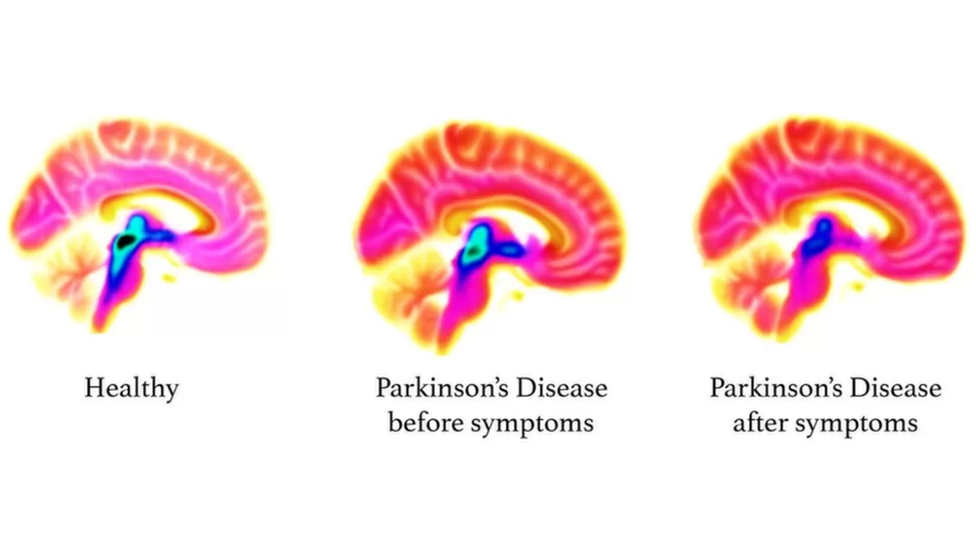
Parkinson's disease, external is a degenerative condition which affects how your brain communicates with the muscles in the body.
It is commonly associated with a visible tremor or muscle rigidity.
A person with Parkinson's disease can also experience a wide range of psychological problems.

A few months after his diagnosis, Scott decided he didn't want the disease to "dominate" his life, and sought advice online from other people with Parkinson's.
"The advice you get is to learn something new which stimulates the brain - like knitting, for example," he explained.
"This gets your brain functions up and running which is really important. Also, to get physically strong and fit."
Scott wanted to combine these two aspects and find something which was both physically and cognitively challenging at the same time.
So he took up CrossFit, a conditioning and strengthening programme encapsulating a range of workouts designed to improve mobility, strength and flexibility.
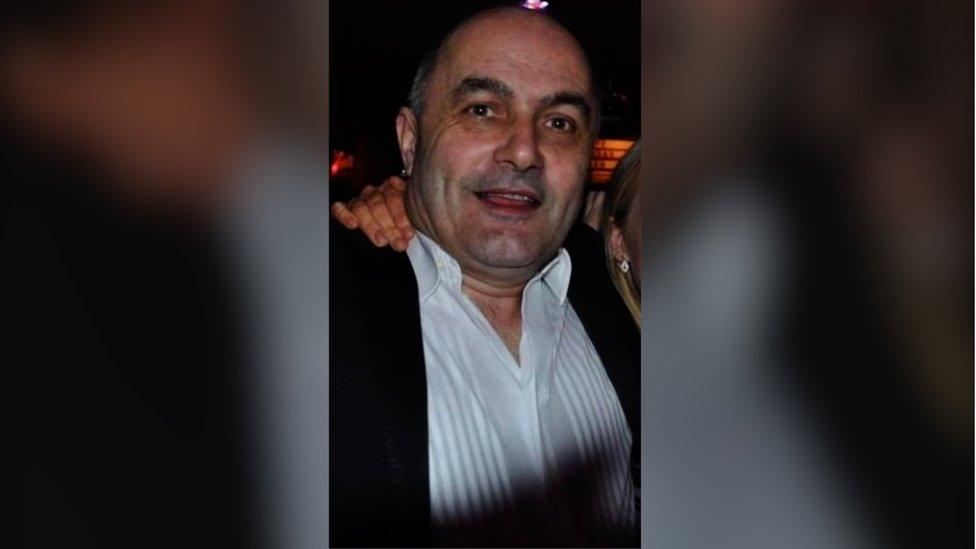
Scott was diagnosed with Parkinson's just before Christmas in 2017
'Tremors are in the past'
Scott joined CrossFit classes three times a week from April 2021 after the lockdown rules changed and allowed gyms to open again.
He noticed significant changes "within four or five months".
"All the tremors, cramping, sleep deprivation, the nightmares… they are a thing of the past."
He had his last neurological consultation back in December 2021.
His neurologist told BBC News NI that his "symptoms were much less prominent and had decreased significantly".
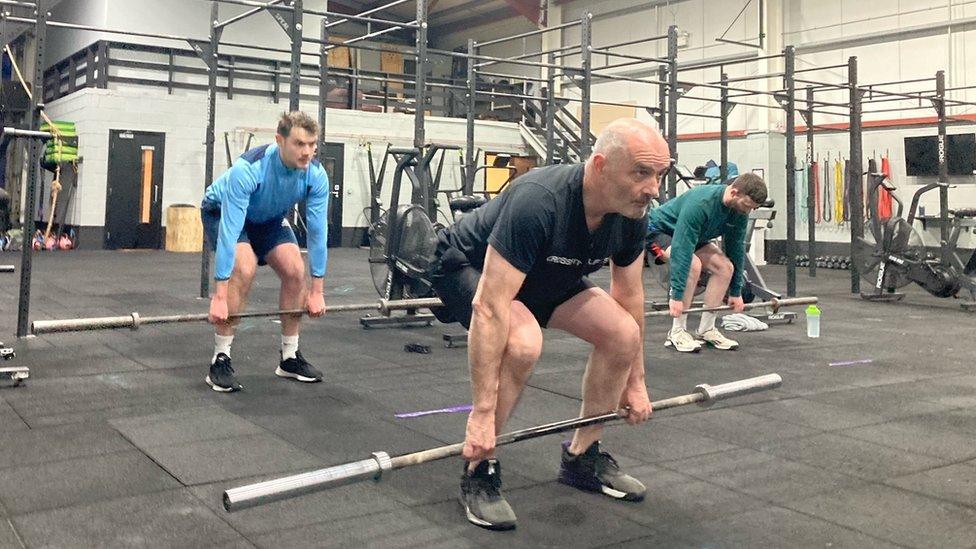
Scott says Crossfit allows him to use his brain and body
Dr Jonny Acheson from Parkinson's UK's Excellence Network said: "Research has shown that 2.5 hours of high-intensity exercise a week slows the progression of this condition.
"If you have recently been diagnosed with Parkinson's, it's really important that you re-engage with exercise because it is the one thing that really helps you get control of the disease."
The British Medical Journal, external states that "for people with Parkinson's, exercise has reported benefits for controlling motor and non-motor symptoms alongside the use of pharmacological intervention".
Scott now goes to his local gym five times a week.
"You never know what you will be doing. Yesterday I was upside down, tomorrow I might be running… a lot of it is quite technical so you really need to use your brain."
His coach, Niall McHugh, has witnessed his outstanding journey.
"Scott didn't make us aware at the beginning that he had Parkinson's. So, he never got any special treatment," he said.
"When he let us know about six months later, a lot of things made sense in terms of his movements. He has put in the hard work and has really improved."
Scott says Crossfit has given him a reprieve from the challenges he was facing.
"I'm not sick - I forget that I have Parkinson's disease. I mean, I do, but I don't," he added.
Related topics
- Published1 August 2018
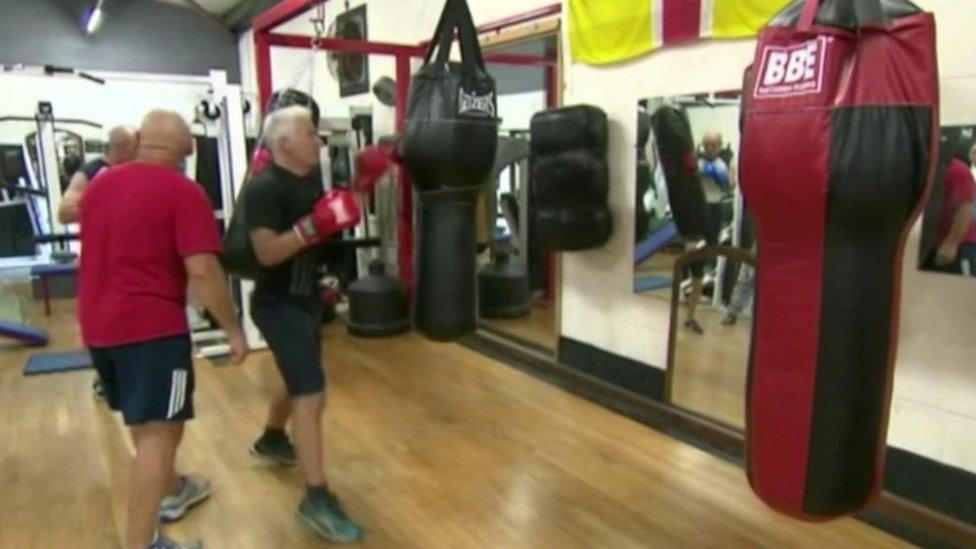
- Attribution
- Published23 November 2021
